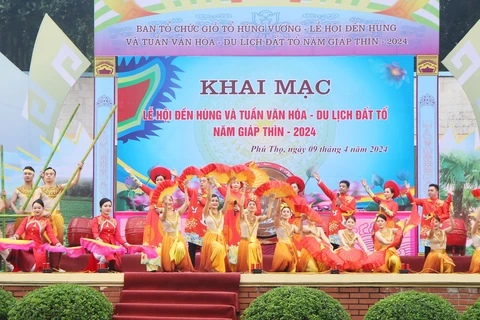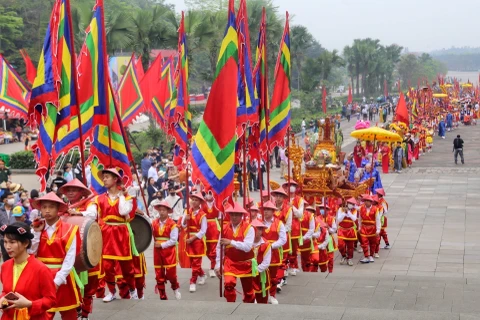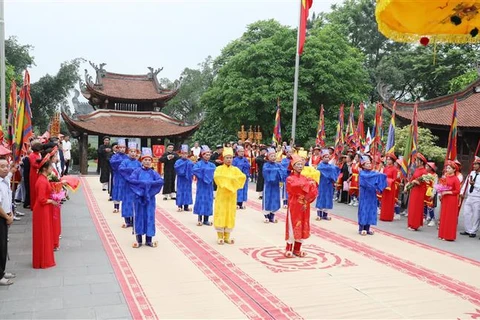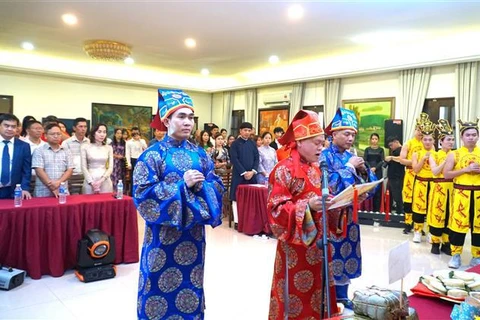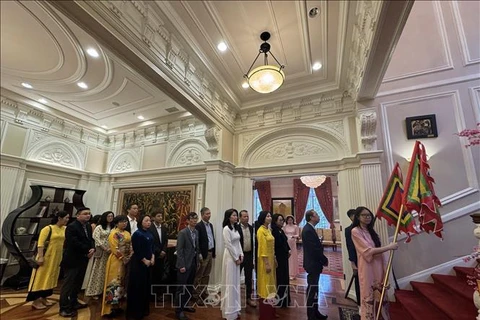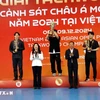 The palanquin procession to Hung Kings Temple takes place on April 15. The commemorative anniversary for the Hung Kings - the Hung Kings Temple Festival has been upheld for thousands of years. (Photo: VNA)
The palanquin procession to Hung Kings Temple takes place on April 15. The commemorative anniversary for the Hung Kings - the Hung Kings Temple Festival has been upheld for thousands of years. (Photo: VNA) The procession from communal houses and temples of seven localities in the vicinity of Hung Kings Temple to the historical relic site reenacted ancestor worship-related practices by local residents and took place as part of the Hung Kings Temple Festival.
Legend has it that Lac Long Quan (son of Kinh Duong Vuong and Than Long Nu) married Au Co (the fairy daughter of De Lai). Au Co gave birth to a pouch filled with one hundred eggs, which hatched into a hundred sons. However, soon thereafter, Lac Long Quan and Au Co separated. Lac Long Quan went to the coast with 50 of the children, while Au Co went to the highlands with the rest.
Their eldest son was made king, who named the country Van Lang and set up the capital in Phong Chau (now Viet Tri city in Phu Tho province), beginning the 18 reigns of the Hung Kings.
The kings chose Nghia Linh Mountain, the highest in the region, to perform rituals devoted to rice and sun deities to pray for bumper crops.
To honour their great contributions, a complex of temples dedicated to them was built on Nghia Linh Mountain, and the 10th day of the third lunar month, which falls on April 18 this year, serves as the national commemorative anniversary for the Hung Kings.
The worship of the Hung Kings, closely related to the Vietnamese people’s tradition of ancestor worship, was recognised as part of the Intangible Cultural Heritage of Humanity by UNESCO in 2012./.
VNA
